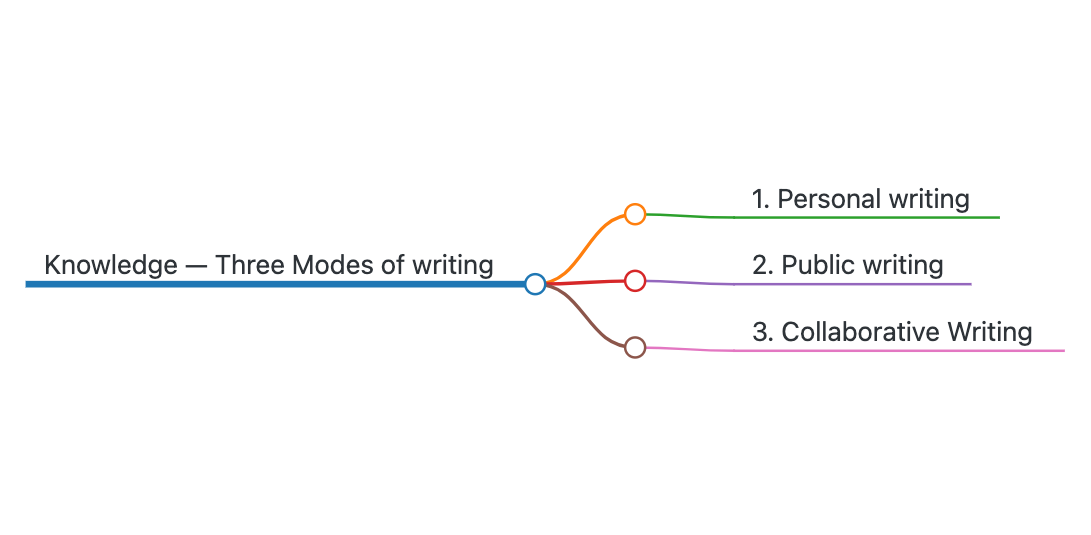1. Personal writing
For me that was Evernote, then for a while Google Docs, now Obsidian
Obsidian suits because of linking and tags. And because I’m not combining it with tasks, and because I’m not using it to store reference material or bookmarks. I’m also learning to process my thoughts more fully.
Later: Sunday, 20 March 2022 – I use it for Tasks. But not for storing reference material. with Dataview plugin I can add a task to any note, and it will be on the list of tasks. I don’t think it interferes with my knowledge dev. I can add tasks that are just about plans for that note. Writing Plans.
2. Public writing
This blog has almost 30 years of my public note taking. Psyberspace — my overgrown garden with indexes and categories. For it to be public there must be readers, and this blog does have some, dear reader!
3. Collaborative Writing
Google Docs, there must be a better way! Social Media done right? Social Creation? Comments on posts? Relationships are always the hardest, the neglected…
Consider this however, that this post was stimulated by a whole movement of people engaged in PKM and theorising about it. I’m not just a lonely brooder.


